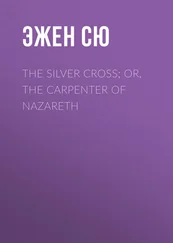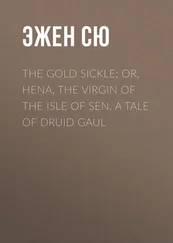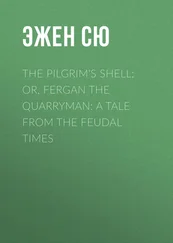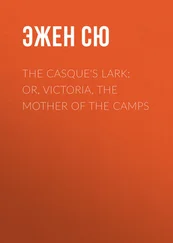Эжен Сю - The Knight of Malta
Здесь есть возможность читать онлайн «Эжен Сю - The Knight of Malta» — ознакомительный отрывок электронной книги совершенно бесплатно, а после прочтения отрывка купить полную версию. В некоторых случаях можно слушать аудио, скачать через торрент в формате fb2 и присутствует краткое содержание. Жанр: literature_19, foreign_antique, foreign_prose, на английском языке. Описание произведения, (предисловие) а так же отзывы посетителей доступны на портале библиотеки ЛибКат.
- Название:The Knight of Malta
- Автор:
- Жанр:
- Год:неизвестен
- ISBN:нет данных
- Рейтинг книги:3 / 5. Голосов: 1
-
Избранное:Добавить в избранное
- Отзывы:
-
Ваша оценка:
- 60
- 1
- 2
- 3
- 4
- 5
The Knight of Malta: краткое содержание, описание и аннотация
Предлагаем к чтению аннотацию, описание, краткое содержание или предисловие (зависит от того, что написал сам автор книги «The Knight of Malta»). Если вы не нашли необходимую информацию о книге — напишите в комментариях, мы постараемся отыскать её.
The Knight of Malta — читать онлайн ознакомительный отрывок
Ниже представлен текст книги, разбитый по страницам. Система сохранения места последней прочитанной страницы, позволяет с удобством читать онлайн бесплатно книгу «The Knight of Malta», без необходимости каждый раз заново искать на чём Вы остановились. Поставьте закладку, и сможете в любой момент перейти на страницу, на которой закончили чтение.
Интервал:
Закладка:
And the baron drew a knife from his pocket, cut off the right foot of the hare, and gallantly presented it to his daughter, who accepted, not without some repugnance, this trophy of the chase.
Mistraon was led back to the stable, but Eclair and Genêt, favourites of the baron, followed him side by side, as, leaning on the arm of his daughter, he made what he called his evening inspection, while waiting for the hour of supper.
The women and young girls were spinning at the wheel, the men mending their nets and cleaning implements of husbandry. Master Laramée, the old sergeant of the company raised by the baron during the civil troubles, and majordomo and commander of the castle garrison, exacted that all of the baron’s tenants, who, in turn, performed the service of sentinel on the terrace which bordered the sea, should be armed in military style.
Others were engaged in decorating long lances, destined for jousts on the water, or to be used in jumping the cross-bar, the usual Christmas amusements, in the colours of the baron, red and yellow. Some, more seriously occupied, prepared the seed for late sowing; some were weaving, with great care, baskets out of rushes, to hold presents of fruit, made at Christmas.
These occupations were enlivened by songs peculiar to the country, sometimes accompanied by some marvellous legend, or terrible recital of the cruelties of pirates.
In an upper hall filled with fruit, children and old men were busy in examining long garlands of grapes, which hung from the rafters of the ceiling, or packing in baskets sweet-smelling figs, dried upon layers of straw.
Farther on was the laundry, where the washerwomen, under the supervision of a gentlewoman, Dulceline, the housekeeper, were occupied in perfuming the linen of the castle, by putting between its folds, whiter than snow, the leaves of aromatic herbs.
Often the sharp voice of Dulceline rose above the songs of the washerwomen, as she reprimanded some idlers.
By the side of the laundry was the pharmacy of the castle, where the peasants of the neighbourhood found all their remedies. This pharmacy belonged to the department of the baron’s chaplain, Abbé Mascarolus, an old and excellent priest of angelic piety and rare simplicity. The chaplain had an extensive acquaintance with medical men and their attainments, and firmly believed in the strange pharmacy of that time.
In spite of the continual apprehension of a visit from the pirates, all the inhabitants of Maison-Forte shared the traditional gaiety, so to speak, which the approach of Christmas, the most joyous and most important festival of the year, always brought to Provence.
Every evening before supper, the baron made, in company with his daughter, what he called his inspection; that is, he went through the whole theatre of the various occupations with which we have been entertaining the reader, chatting familiarly with everybody, listening to requests and complaints, often impatient and sometimes flying into a passion and scolding, but always full of justice and kindness, and so cordial in his good-humour that his bursts of irritation were soon forgotten.
Raimond V. kept a large part of his domain in good condition. He sat up a long time at night to talk with his principal shepherds, labourers, farmers, and vinedressers, convinced of the wisdom of the two Provençal proverbs, worthy of the watchman on the cape of l’Aigle: Luci doou mestre engraisso lou chivaou , – the eye of the master fattens the horse. Bouen pastre, bouen ave , – good shepherd, good flock.
The old gentleman usually completed his circuit by a visit to the pharmacy, where he found Abbé Mascarolus, who gave him a sort of hygienic statement of the health of the inhabitants of the domain Des Anbiez.
To-day, he passed by the laundry, going directly to the pharmacy, accompanied by Reine. Preparations for the Christmas holidays were going on all through the castle, but the most important solemnity of all was reserved for the care of the venerable Dulceline, who had entreated the abbé to enlighten her with his counsels.
This was the cradle or crib, a sort of picture placed every Christmas day in the most beautiful room of the habitation, – castle, cottage, or mansion.
This picture represented the birth of the infant Jesus; there were the stable, the ox, the ass, St Joseph, and the Virgin holding on her knees the Saviour of the world.
Every family, poor or rich, deemed it absolutely requisite to have a cradle as elegant as could be afforded, ornamented with garlands and tinsel, and illuminated with a circle of candles.
As Raimond V. passed the laundry, he was surprised not to see Dulceline, and asked where she was.
“Monseigneur,” said a young girl with black eyes and cheeks the colour of a pomegranate, “Mile. Dulceline is in the chamber of the philters, with the abbé and Thereson; she is at work on the cradle, and forbids us to enter.”
“The devil!” said the baron, “the supper-bell has rung, and the abbé must say grace for us.”
He advanced to the door; it was fastened on the inside; he knocked.
“Come, come, abbé, supper is ready, and I am as hungry as the devil.”
“One moment, monseigneur,” said Dulceline, “we cannot open, – it is a secret.”
“What, abbé, you have secrets with Dulceline?” said the old gentleman, laughing.
“Ah, monseigneur, God save us! Thereson is with us,” screamed the old lady, offended at the baron’s pleasantry. As she opened the door, she presented a pale, wrinkled face, framed in a ruff and cap, worthy of the pencil of Holbein.
The abbé, fifty years old, was dressed in a black robe and cap, which fit his head closely and displayed his gentle face to advantage.
Thereson, as soon as the baron entered, hid the cradle under a cloth. The baron approached, and was about to lift it, when Dulceline cried, in a beseeching tone:
“Oh, monseigneur! permit us the pleasure of surprising you; rest assured this will be the most beautiful cradle that has ever adorned the great hall of Maison-Forte, and it ought to be, by Our Lady, since the commander and Father Elzear are coming such a distance to assist at the Christmas festivity.”
“Manjour! I shall be unhappy indeed if they do not come,” said the baron: “two years have passed since my brothers have spent a night or a day in our father’s house, and by St. Bernard, my patron, who assists me, the Lord will grant us a reunion this time!”
“God will hear you, monseigneur, and I join my prayers to yours,” said the abbé. Then he added: “Monseigneur, did you have a successful hunt?”
“Very good, abbé, see for yourself!” and the baron took the hare’s foot that Reine held in her hand, and showed it to the abbé.
“If mademoiselle does not desire to keep this foot,” said the abbé, “I will ask her for it, for my pharmacy, and will monseigneur tell me if it is the right or the left foot of the animal?”
“And what are you going to do with it, abbé?”
“Monseigneur,” said the good Mascarolus, pointing to an open volume on the table, “I have just received this book from Paris. It is the journal of M. de Maucaunys, a very illustrious and learned man, and I read here, page 317: ‘Recipe for the gout. Lay against the thigh, between the trousers and the shirt, on the side affected, two paws of a hare killed between Lady Day of September and Christmas, but with the important restriction, that the hind left paw must be used if it is the right arm which is ailing, and the right fore paw if it is the leg or the left thigh which is ailing: on the instant the application is made, the pain will cease.’”
“Stuff!” cried the baron, laughing with all his might. “This is a wonderful discovery; now the poachers will claim to be apothecaries, and they will catch hares only to cure the gout.”
Читать дальшеИнтервал:
Закладка:
Похожие книги на «The Knight of Malta»
Представляем Вашему вниманию похожие книги на «The Knight of Malta» списком для выбора. Мы отобрали схожую по названию и смыслу литературу в надежде предоставить читателям больше вариантов отыскать новые, интересные, ещё непрочитанные произведения.
Обсуждение, отзывы о книге «The Knight of Malta» и просто собственные мнения читателей. Оставьте ваши комментарии, напишите, что Вы думаете о произведении, его смысле или главных героях. Укажите что конкретно понравилось, а что нет, и почему Вы так считаете.












